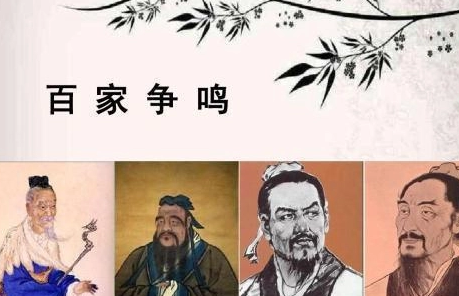The Hundred Schools of Thought is an important intellectual and cultural phenomenon in Chinese history, which formed and reached its peak during the Warring States period. So, what is the content and influence of the Hundred Schools of Thought? This article will explore this issue from multiple perspectives.

Paragraph 1: Background Introduction
From 475 BC to 221 BC was the Warring States period in Chinese history. During this period, significant changes occurred in China's politics, economy, and culture. Among them, the Hundred Schools of Thought was an important intellectual and cultural phenomenon. During this period, various ideological schools engaged in intense debates and discussions, proposing various theories and viewpoints.
Paragraph 2: Content of the Hundred Schools of Thought
The content of the Hundred Schools of Thought is very rich and diverse, covering philosophy, politics, military, economy, culture, and other fields. Among them, Confucianism emphasizes benevolence and ritual governance, Taoism advocates doing nothing and letting things take their course, and Mohism promotes universal love and non-aggression. These different ideological schools have made unique contributions in their respective fields, forming the diversity and complexity of Chinese philosophy.
Paragraph 3: Influence of the Hundred Schools of Thought
1. Promoted the development of Chinese philosophy: During the Warring States period, various ideological schools contributed to philosophy, promoting the development of Chinese philosophy. For example, Confucianism proposed the ideas of "loving others as oneself" and "governing the country with morality"; Taoism advocated "doing nothing and letting things take their course"; Mohism promoted "universal love" and "non-aggression". These different ideological schools interacted and borrowed from each other, jointly promoting the development of Chinese philosophy.
2. Promoted the development of science and technology: During the Warring States period, various ideological schools contributed to science and technology, promoting the development of Chinese science and technology. For example, Legalism advocated governing the country with law, promoting strict legal systems; Yin-Yang School explored natural phenomena such as astronomy and geography, proposing the concept of "harmony between heaven and man". These different ideological schools have made unique contributions in their respective fields, laying a solid foundation for the development of ancient Chinese scientific and technological civilization.
Disclaimer: The above content is sourced from the internet and the copyright belongs to the original author. If there is any infringement of your original copyright, please inform us and we will delete the relevant content as soon as possible.






























